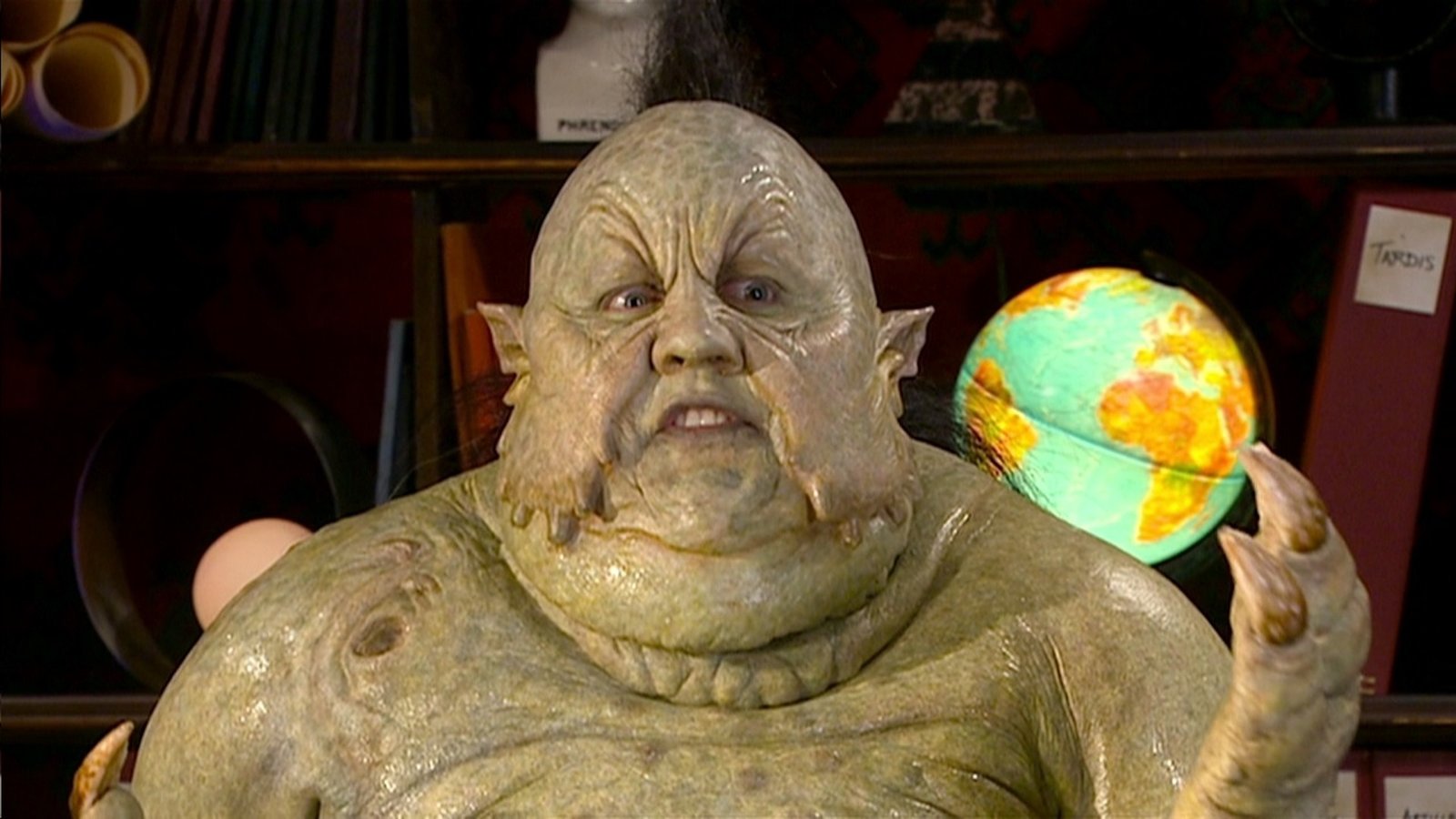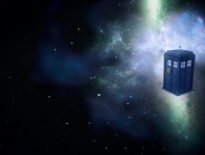In the wild, you’ll see it often. It will occur in the form of a hashtag, one of those Friday afternoon things rumbling around the low thousands, usually trending in London. Or it will be a Facebook post, or perhaps, if someone really didn’t have anything else to write about that day, some sort of listicle. (“You will never,” my friend Gareth insists, “convince me that ‘listicle’ is a real word.”)
It will broach the minefield that is Guilty Pleasures, and today, constant reader, I’ve dropped in to tell you why it’s all a load of rubbish.
Before we begin, let’s establish some Doctor Who-related context. You will have already, in your head, made the connection: a story or stories that generally swim around the underbelly of audience ratings, the sort that got savaged by press and public alike but which you – irregardless and perhaps inexplicably – manage to enjoy. The ones that haunt those Worst Stories Ever playlists that are popular on YouTube. Clunky dialogue, poor plotting, and inadequate resolution seem to be recurring traits, although if your monster looks and behaves like Ian Levine you’re not exactly going to endear yourself to his fanbase. Stories like this tend to fall into the ‘so bad they’re good’ category (something else we’re about to deconstruct, but one thing at a time), as opposed to the mundane-but-forgettable pleasantness of, say, Frontios or Dragonfire. Most of them seem to feature Colin Baker. You will, when I mentioned the words Guilty Pleasure, have begun to assemble your own list. Most of them will, again, probably feature Colin Baker.

“He’s tied it to the door. He’s tied it to the bloody door.”
Stories that you liked that no one else did? It happens a lot and it’s a good conversation starter. Here at the DWC we once spent an entire week dealing in underappreciated gems. There is something subversive about dusting off a hated story and examining it under the Microscope of Hindsight (£29.95 retail, although you get a special discount if you buy it alongside the Wellingtons of Experience). Revisiting stories everybody held in contempt allows you to examine whether the initial revulsion was justified, or whether people were simply in shock that the Brigadier was now a Cyberman or that Princess Leia could suck herself back in through an exploding window from the vacuum of space.
But that word ‘guilty’ is loaded. No one really talks about it; it’s one of those things you say out loud without really questioning what it is you’re actually saying, rather like the Lord’s Prayer or the lyrics to Rule Britannia. ‘Guilt’ implies some sort of moral framework – some system of apportioning blame for a mistake or an error of judgement. In other words, there are stories you are actively compelled to dislike; thus a Guilty Pleasure is a story that you enjoy even though (or perhaps even because) you’re not supposed to be enjoying it.
What I would like to know is this. Who is responsible for this act of collective shaming? Who has ascribed these stories as somehow off limits, unwatchable, the sort of thing you wish the BBC had wiped instead of Fury From The Deep? Are decisions like this made by some covert group of writers and shareholders? Is it the Guardian? Do they have a committee of dark-suited chain-smoking divorced men sitting around in a windowless room deciding which stories are included? Can you apply for a role like this, or is entry restricted to those who are of noble blood or prepared to undergo some bizarre quasi-Masonic ritual? And once you’re in, how do you actually going about deciding anything? Do they put it to the vote, the value of entertainment determined by simple democracy? Gut instinct? Is it fault-based, like failing a driving test?
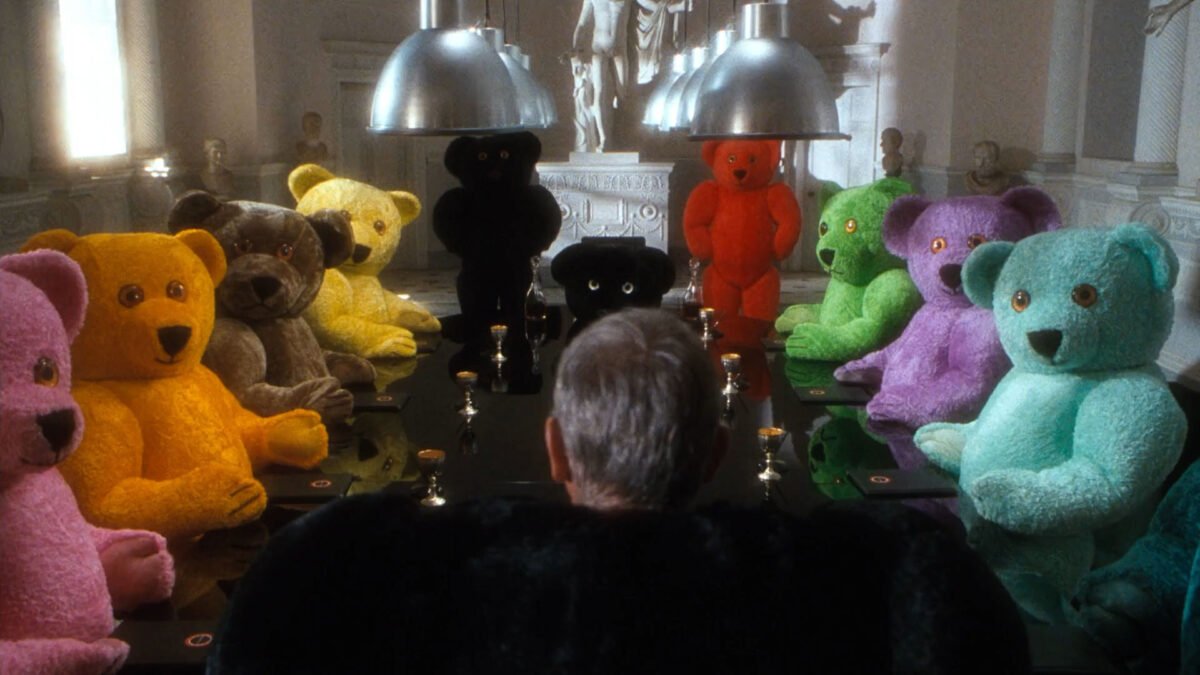
To give you an idea of how ludicrous it all is, we insert a parenthesis: A Series Of Unfortunate Events, book six, also known as The Ersatz Elevator. The orphaned Beaudelaires are sent to yet another new abode, this one taking the form of a glamorous penthouse, where they’re looked after by a rich socialite (spoiler alert: she’s Count Olaf’s girlfriend and he’s hiding in the cupboard). Even before Esme Squalor reveals her true colours, you’re already perplexed by some of her absurd, overtly trend-chasing behaviour. “Pinstripes are in,” she explains, having given the incredulous Baudelaires three new sets of clothes, “and orphans are in, so just imagine how in you’ll be when you orphans are wearing pinstripes! No wonder you’re so excited!”
There’s a very simple answer to all this, of course, and it comes in the form of episode rankings and critical consensus. A single fan can tell you his or her opinion but cannot provide anything we might call empirical. A conglomeration of fans, on the other hand, can each give their own views and thus some form of collective view might be assembled by whoever is doing the counting. Statistics, as my wife will tell you, count for a great deal when they’re done properly: everyone likes different things, but if you were to collate a dozen press reviews of a single episode and eleven of them were overwhelmingly negative you could probably assume that the general consensus was that this particular tale was a dud, even if you hadn’t bothered to search out each and every publication that had taken the time to review it.
There is some logic to this. I know I spend an awful lot of time deconstructing fandom, but even I have my limits. Few would argue that Rick James’ performance as Cotton in The Mutants was abysmal; that Mel’s screaming in Time and the Rani was both annoying and excessive; that the patterned floor cliffhanger in Death To The Daleks is baffling and inadequately signposted. A few months ago I came across a post written in defence of The Twin Dilemma. “It’s a good story,” read one comment. “Don’t understand all the hate.” Really? You don’t? Because those are two separate statements. There’s much that’s been committed to paper about how badly The Twin Dilemma screwed things up – it’s partly that it has to ride in clinging desperately to the shirt tails of one of the greatest stories of all time, but largely because it’s poorly written, badly acted, and does nothing to endear us to its central character. You are still allowed to like it, of course, but if you genuinely can’t understand why it’s universally loathed then I might suggest you need to pay a little closer attention the next time this comes up.
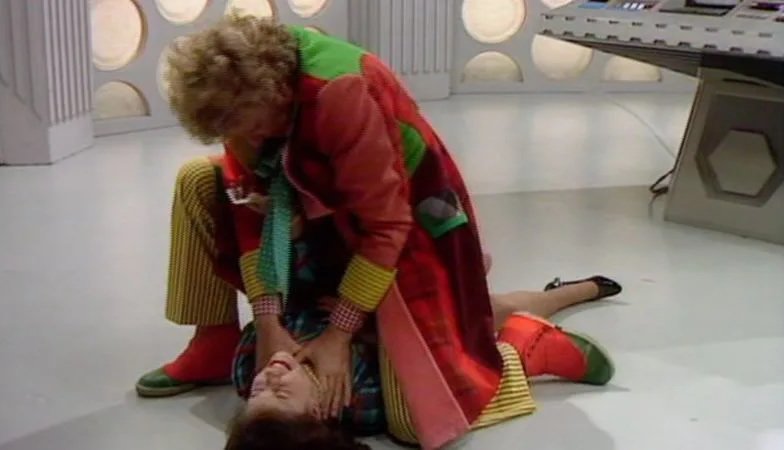
I use the word ‘universally’ with the same sort of dramatic license employed by the Master, of course. In a 2014 Doctor Who Magazine ranking of each and every story that existed at the time (a concept I’ve always considered structurally unsound, largely because no one’s seen Marco Polo since 1964), The Twin Dilemma sat squarely at the bottom. The poll itself was calculated by adding together total scores for each story, as supplied by readers. It’s the sort of divisive (if well-intentioned) hokum that fans seem to love, or love to hate – delete where applicable – and as if to pre-empt this Tom Spilsbury offered a convenient get-out clause in his editorial: “Every story,” he points out, “is someone’s favourite”. That’s certainly true for Blink; I also believe it’s true for The Twin Dilemma. One of you out there – out of sympathy or stubbornness or maybe just because you saw something we all missed – thinks Colin Baker’s inaugural adventure warrants pole position; the prime spot at the top of the pile. To quote the infuriatingly effervescent Michael Buble, I just haven’t met you yet.
We might apply this across the board, because it doesn’t stop at Doctor Who. Let’s think about music for a second. Specifically, let’s think about Wannabe, or Damien’s cover of The Time Warp, or… I don’t know, anything by Mika. The sort of thing that has the lips of the establishment curling into a perpetual sneer before you’ve even got beyond the first verse. The songs that make those wretched Channel 4 Top 100 lists, where out-of-work comedians natter about why they’re s**t, but which are guaranteed to fill the dance floor at a wedding. To once more quote Stuart Maconie I would like to reiterate, as I have in here before, that there is no such thing as a Guilty Pleasure when it comes to music. There is simply good music and bad music.
And not to simplify things too much, but if it moves you on an emotional level, has you singing to a hairbrush, or tapping your feet in the car, then isn’t it good music? We may not be in virtuoso territory – Paganini playing Viotti, with Beethoven at the piano – but isn’t it about more than simply being able to sing? A pub band that’s playing terribly but with enthusiasm can be more fun on a Saturday night than the world’s finest symphony orchestra, and there should be no guilt, no sense of despair, no snobbery attached to enjoying it. You don’t have to be accomplished to make things work, or to actually be good. Otherwise every band would sound like Yes, which is a surefire way to suck all the marrow out of life.
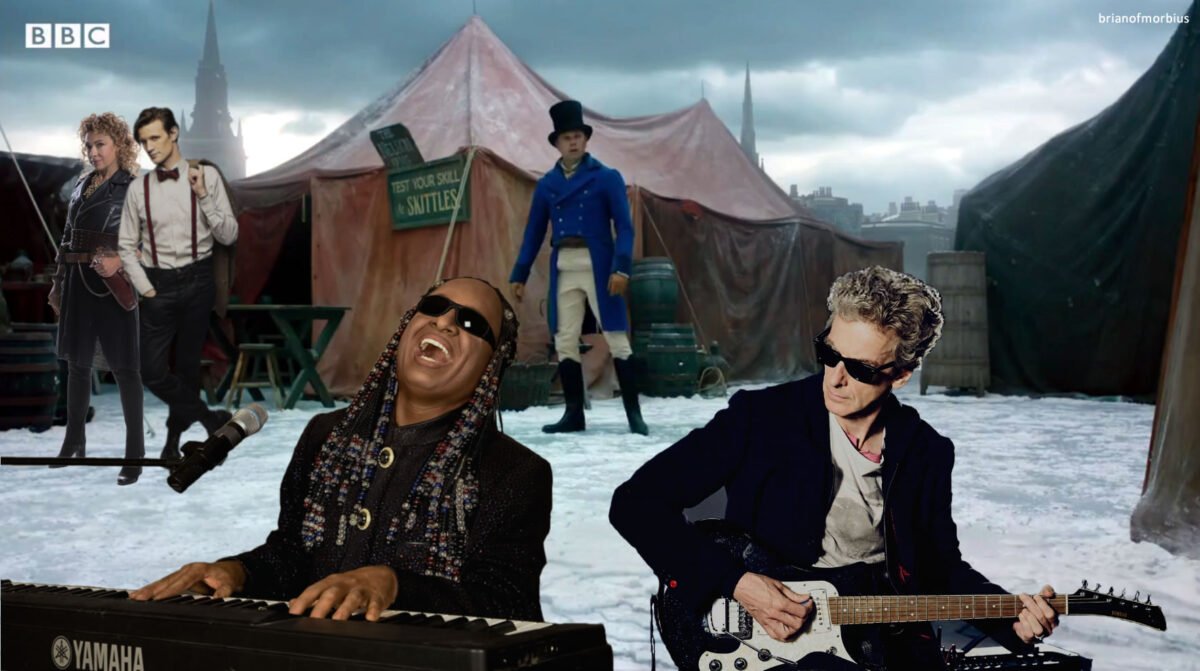
I don’t enjoy Love Island – from the little I’ve seen of it, it’s shallow and exploitative – but other people seem to, and if the goal of television is to inform and educate but above all entertain, then hasn’t it done its job? And if there is a line to be drawn, and if there are certain shows that cross that line and cease to become entertaining, then who is responsible for determining where the line is drawn? Because for the sake of journalistic integrity I just looked up a list of 100 guilty pleasure songs – “Songs,” the opening paragraph read, “that would make you feel embarrassed if you were caught singing along to them” – and some of the entries baffled me. I won’t elaborate; you can guess.
No one is advocating a nuclear approach – the role of the TV critic is complicated but not without its merits – but I wonder whether we need to be doing it less, and that goes for the fans as well as the critics. There is nothing wrong with calling out bad acting or scenes that don’t work but there is a toxic unpleasantness behind obsessive curation, this idea that certain episodes make the cut and others don’t, endlessly compiled and relisted because articles with a number in their title tend to do better in the search rankings (this is true; I’m speaking from bitter experience). Sometimes I wonder whether we ought to go back to basics, and just enjoy it for its own sake – like Richard Dreyfuss in Mr Holland’s Opus, when he’s teaching a student about the value of passion by playing her The Kingsmen’s Louie, Louie. “They can’t sing,” he says. “And they have absolutely no harmonic sense, and they’re playing the same three chords over and over. And I love it, because it’s fun.”
There are exceptions. For instance, I am willing to allow the concept of guilty pleasures when it comes to food. Food that is high in fat, sugar, and cholesterol is rightly labelled as being unhealthy – which is not to say don’t eat it, just don’t overdo it. A McDonalds Quarter Pounder is cheap, nasty, and insubstantial, but quite fun while it lasts – and harmless enough in moderation. But unless you have the metabolism of, say, the Flash, moderation should be the default. Some foods are objectively unhealthy, and while the evidence is changing on an almost weekly basis (is red wine good or bad for you right now? Seriously, I can’t keep up) it doesn’t change that much, and there is far more certainty about a scientific principle than there is about the bleating of a few thousand TV viewers.

But even this empiricism has its price, not to mention its critics. How far, in our quest to be healthy and drive down the obesity epidemic, have we swung the pendulum in the opposite direction? “Why would you buy rubbish like that,” we’re often told, “when you can cook much better at home, on a budget? Like this woman from Bristol, who produced low-fat chicken nuggets in her own kitchen in this list of 10 food hacks, and by the way number six will astound you?” This is what happens when you raise a generation of people who are better with technology than they are with people and then foist them on a population with too much leisure time. You’re not allowed to eat unhealthy food items without constantly being reminded by someone or another that they’re unhealthy. Weight Watchers refers to them as ‘syns’.
Words matter, then. Perhaps it’s not so much the words themselves as the concepts they represent. We may argue the toss but there is an element of prejudice in our contempt, a desperate wish that our favourite programme is capable of better, as if ‘better’ were some quantifiable, box-checking construct. It comes across in the sneering about Arachnids in the UK, Fear Her, or In The Forest Of The Night. Some concerns about these episodes are entirely legitimate. On the other hand Matthew Graham had letters from bullied schoolchildren telling him how much the saga of Chloe Webber had helped them. There’s nothing wrong with pointing out the inappropriateness of the blow job gag that concludes Love and Monsters, as long as we don’t start ripping other people apart when they tell us they enjoyed it. (Love and Monsters is, of course, about as meta as the show ever became, given that it is literally about a bunch of Doctor Who fans arguing with a lecherous gatekeeper about the right and wrong ways to enjoy Doctor Who – something that may at least partly account for its enduring unpopularity.)
And there is a fiendish ripping apart, real and implied, both in actual discussion about these stories and in more general discussion about guilty pleasures – or, if I may translate, Episodes You’re Not Really Allowed To Like Without Being Made To Feel Like You’re Not Quite Normal. In the grand scheme of things, this is harmless enough and you have once again read a couple of thousand words about nothing. But perhaps it is not nothing. Perhaps nothing really is nothing, not when you look at the sum of its parts. Perhaps these little things chip into the psyche, helping to create a world where all tastes – and, by extension, the people to whom they’re attached – are valid, but some are more valid than others. A world where you’re held in contempt not merely for the things you believe, but also for the things you like. And call me picky, but I’m not sure that’s really how we want to be.
